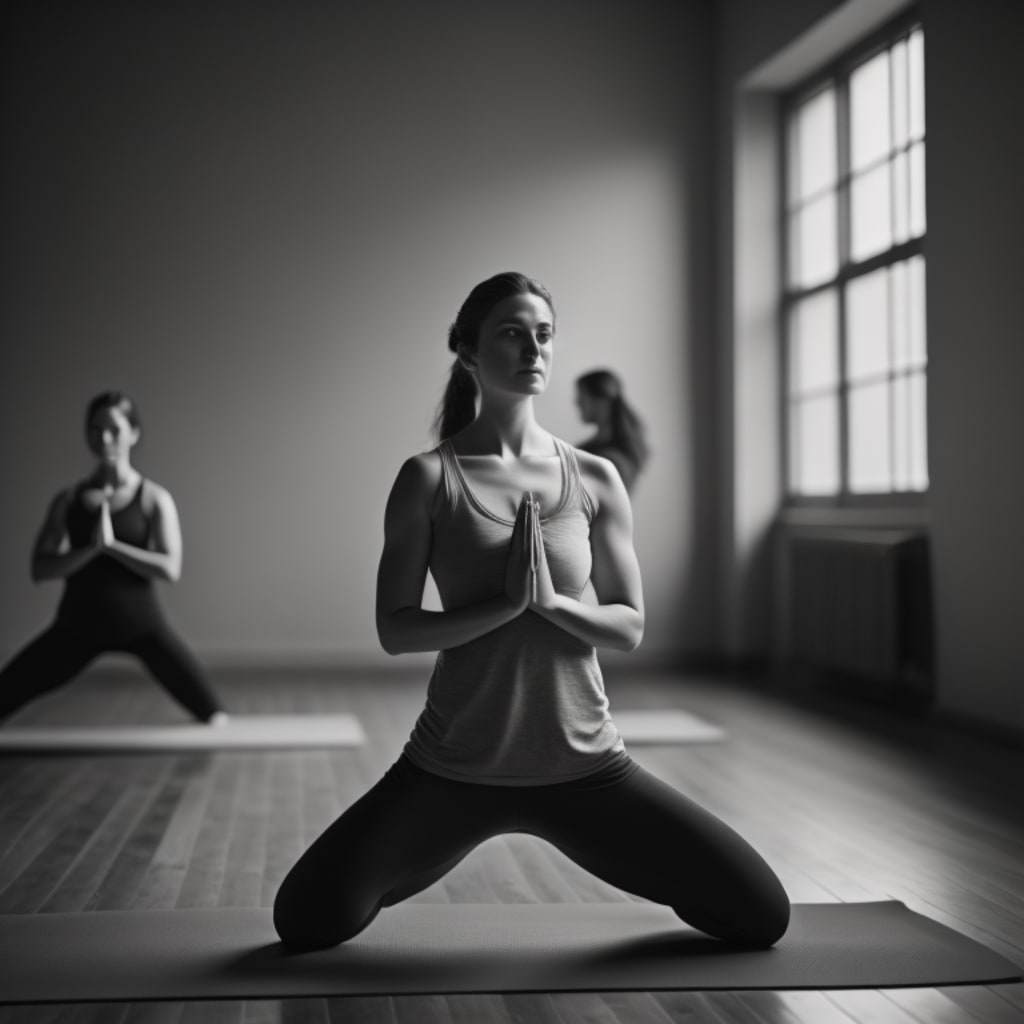The Art of Yoga
Unleashing the Mind-Body Connection for Inner Harmony

In today's fast-paced and demanding world, finding balance and inner peace is more important than ever. The art of yoga offers a transformative journey that integrates the mind, body, and spirit, helping us cultivate harmony, strength, and serenity amidst the chaos. Through a series of physical postures, breath control, and meditation, yoga provides a holistic approach to well-being, allowing us to tap into our inner wisdom and unlock the mind-body connection.
Understanding the Foundations of Yoga
Before diving into the various benefits and practices of yoga, it's essential to understand its foundations. Yoga originated in ancient India thousands of years ago and has evolved into a comprehensive system that encompasses physical, mental, and spiritual aspects. The word "yoga" means union, symbolizing the connection between the individual self (jivatma) and the universal consciousness (paramatma). It is a profound philosophy that aims to align our body, mind, and spirit, ultimately leading to self-realization and inner harmony.
Physical Benefits of Yoga
One of the primary reasons why yoga has gained immense popularity is its numerous physical benefits. Regular practice of yoga postures, also known as asanas, helps improve flexibility, strength, and balance. Through a combination of stretching, holding poses, and controlled movements, yoga enhances muscular endurance and tone, promoting a healthier and more resilient body. Additionally, yoga increases blood circulation, improves posture, and stimulates the body's natural detoxification processes, leading to enhanced vitality and overall well-being.
Enhancing Mental and Emotional Well-being
While yoga has profound physical effects, its impact on mental and emotional well-being is equally significant. The practice of yoga incorporates mindfulness, meditation, and conscious breathing techniques that help calm the mind, reduce stress, and promote relaxation. It provides a space for self-reflection and self-acceptance, allowing individuals to cultivate a deeper understanding of themselves and their emotions. Regular yoga practice has been shown to reduce anxiety, depression, and insomnia, while improving focus, concentration, and overall mental clarity.
Cultivating Mind-Body Awareness
One of the core principles of yoga is the cultivation of mind-body awareness. Through conscious movement, breath awareness, and present-moment attention, yoga invites practitioners to be fully present in their bodies and embrace the present moment. This heightened awareness extends beyond the mat and into everyday life, enabling individuals to make conscious choices, align their actions with their intentions, and live with greater authenticity and mindfulness. By nurturing the mind-body connection, yoga empowers individuals to take charge of their well-being and lead a more balanced and fulfilling life.
The Spiritual Dimension of Yoga
While yoga is often recognized for its physical and mental benefits, it also encompasses a profound spiritual dimension. Yoga philosophy teaches us about interconnectedness, compassion, and the pursuit of self-realization. It offers a path for individuals to explore their spiritual nature, connect with something greater than themselves, and cultivate a sense of inner peace and purpose. Through meditation, chanting, and other spiritual practices, yoga provides a gateway to transcendental experiences and deepens our connection to the divine.
Incorporating Yoga Into Your Life
To embrace the art of yoga and experience its transformative power, consider integrating it into your daily routine. Find a qualified yoga instructor or join a local yoga studio to receive proper guidance and support. Start with gentle beginner classes if you're new to yoga or explore more advanced practices as you progress. Create a sacred space at home where you can practice yoga and meditation, even if it's just a small corner dedicated to your practice. Set aside regular time for self-reflection, mindfulness, and breathwork, allowing yourself to fully immerse in the practice.
Remember that yoga is a journey, not a destination. It's important to approach your practice with patience, compassion, and a willingness to explore. Honor your body's limitations and listen to its cues, always respecting your boundaries. As you continue to practice, you may notice improvements in your flexibility, strength, and overall well-being. But the true essence of yoga lies beyond the physical realm.
Yoga is a powerful tool for self-discovery and personal growth. It encourages us to look inward, embrace vulnerability, and cultivate a deep sense of self-awareness. Through the practice of asanas, pranayama, and meditation, we peel away layers of conditioning, old beliefs, and self-imposed limitations. We become more attuned to our inner voice, intuition, and innate wisdom.
As you embark on your yoga journey, remember that it's not about achieving the perfect pose or comparing yourself to others. It's about finding joy and contentment in the present moment, embracing your authentic self, and nurturing the mind-body connection. Allow yoga to be a sanctuary where you can let go of expectations, surrender to the flow of breath, and tap into your inner stillness.
In conclusion, the art of yoga is a transformative practice that offers countless physical, mental, and spiritual benefits. It teaches us to cultivate harmony within ourselves and connect with the world around us. Through mindful movement, conscious breathing, and self-reflection, we unlock the mind-body connection and tap into our inner reservoirs of strength, peace, and joy. Whether you're a beginner or an experienced practitioner, yoga has something to offer everyone. Embrace the journey, stay committed to your practice, and allow yoga to guide you on a path of self-discovery, well-being, and inner harmony.
References:
Cramer H, et al. A systematic review and meta-analysis of yoga for low back pain. Clin J Pain. 2013;29(5):450-460.
Gothe NP, et al. The effects of yoga on physical functioning and health related quality of life in older adults: a systematic review and meta-analysis. J Phys Act Health. 2019;16(8):626-635.
Ross A, et al. A systematic review of the effects of yoga on mental health. J Psychosom Res. 2010;68(3):271-283.
Streeter CC, et al. Effects of yoga versus walking on mood, anxiety, and brain GABA levels: a randomized controlled MRS study. J Altern Complement Med. 2010;16(11):1145-1152.
Woolery A, et al. A yoga intervention for young adults with elevated symptoms of depression. Altern Ther Health Med. 2004;10(2):60-63.
Note: This article is for informational purposes only and should not replace professional medical advice. Consult with a qualified yoga instructor or healthcare provider before starting any new exercise or wellness program.





Comments
There are no comments for this story
Be the first to respond and start the conversation.